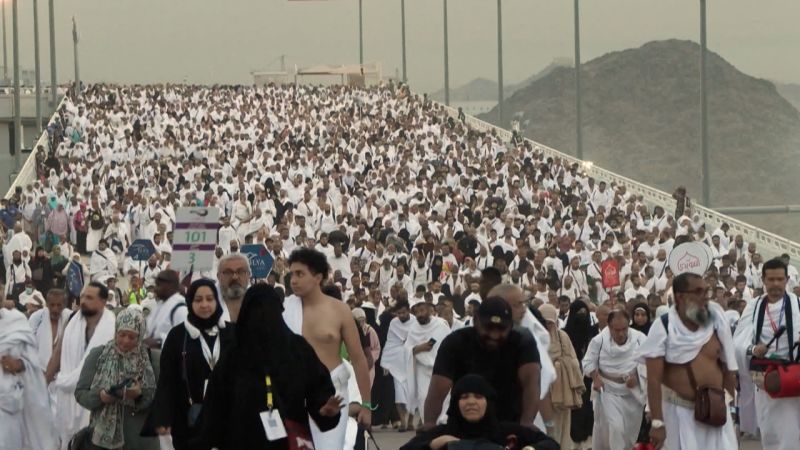
Over 1,300 Muslim pilgrims died during the annual Hajj in Saudi Arabia this month, with many unregistered pilgrims reportedly walking for miles in scorching heat and lacking access to essential amenities like air-conditioned buses and tents. The majority of those who perished were not registered for the pilgrimage, leaving them exposed to the elements. Temperatures during the Hajj season have been soaring beyond 120 degrees Fahrenheit (48.9 Celsius), making it a significant challenge for pilgrims, especially those without proper permits and access to necessary facilities.
The Saudi health minister, Fahd al-Jalajel, confirmed that 83 percent of the reported deaths involved unregistered pilgrims who were forced to walk long distances under the sun. The lack of hajj permits prevented these individuals from utilizing air-conditioned transportation and accessing air-conditioned tents, leaving them vulnerable to heat stress and other health hazards.
The tragic events during this year's Hajj have put a spotlight on the underbelly of the Hajj industry. Many pilgrims pay thousands of dollars to illicit or fraudulent tour operators for flights, hotels, and transportation. In some cases, these companies fail to provide adequate protection from extreme heat and other hazards.
The Wuries, a Maryland couple who were among those who died during the Hajj pilgrimage this year, had paid $11,500 each for their trip through Ehajj and Umrah Tours. However, the company did not have hajj certifications and lacked transportation and accommodations for the Wuries. The couple ultimately decided to walk up to Mount Arafat with other travelers, where they died that day.
The Saudi government has acknowledged the extreme heat risks during this year's Hajj but remains silent on the fatalities. It is unclear if the number of deaths this year was higher than usual, as Saudi Arabia does not regularly report such statistics. Last year, 774 pilgrims died from Indonesia alone, and in 1985, more than 1,700 people died around the holy sites due to heat stress.
Saudi Arabia plans to increase the number of Hajj pilgrims to 5 million by 2030 from just under 2 million now. The country recognizes the economic potential of religious tourism and is investing in mega-projects like FIFA's 2034 Men's World Cup, NEOM city, the Red Sea project, and Al Qiddiya projects. However, it is crucial that these projects prioritize the health and safety of all those involved to prevent future tragedies.




